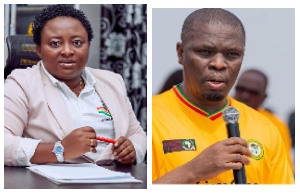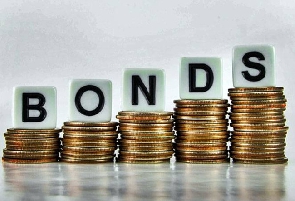The presence of Ivorian rebels in Ghana can no longer be disputed although the authorities would contest the diplomatic downgrading by the United Nations.
When an international organisation as the United Nations, to which we belong and serve in various forms, passes such remarks about our country, the least we can do is to get our act together and reverse the unacceptable impression in spite of the face we would lose.
We were one of the newspapers to express concern about the need for the authorities, especially the National Security Council, to deal with the fear that some of the refugees seeking sanctuary here could be engaging in clandestine activities inimical to our national interest.
Our fears were heightened during the biometric registration exercise when some of them were spotted taking part in the registration. Regrettably, some of those arrested were released upon the intervention of some DCEs who sought to use them for some electoral projects.
Our fears have not been without basis as proved by the rating of the United Nations of our country as a place where rebels from the neighbouring country plan cross-border missions. Considering our international standing, this is not an enviable rating by the international organization.
The Rambos, The Tarzans, names by which some of the dangerous characters are known, live here and could have been part of those who undertook the recent missions into Ivory Coast. The security and diplomatic implications of the developments can be costly, yet our efforts at stemming them are at best cosmetic.
We have taken things easy, issuing occasional releases in futile attempts to allay the fears of Ghanaians and to assure the diplomatic community of our sincerity. Our conclusion that there is some form of authorisation for the operations of the dissidents has some credence.
A paramilitary training camp, after its presence was captured in the media, was dismantled somewhere in the Volta Region recently. When the story appeared earlier, there were some who took it with a pinch of salt but when the reality dawned, they could only wonder how such a travesty of the law could be allowed in a country not used to such matters. Our continuous playing of the ostrich would not take us anywhere.
If the presence of the dissidents and their engagement in the bloody activities against their country do not have the blessing of the government on the quiet, of course, then our national security has been compromised. We need answers to the many questions that have been triggered by the Ivorian dissidents’ issue.
Government bias for Laurent Gbagbo was largely suspected when Ivory Coast was going through turmoil. The product of the bias was evident in the “dzi wo fie asem” ill-famed remark by the late President John Evans Mills as an excuse for not getting involved in the raging fire next-door. Until the government comes out with a convincing statement about the situation of the Ivorian dissidents in our midst, we can only sneer at the developments, hold our breath and pray.
General News of Friday, 12 October 2012
Source: Daily Guide

















